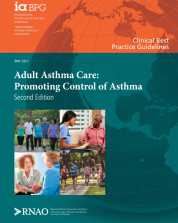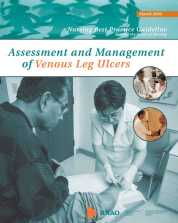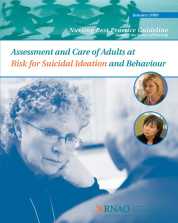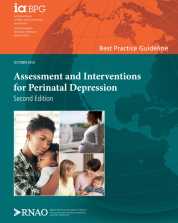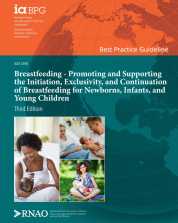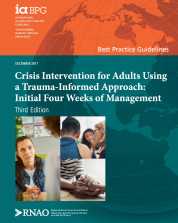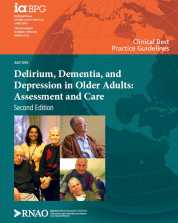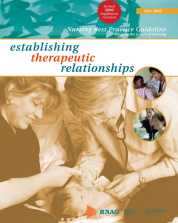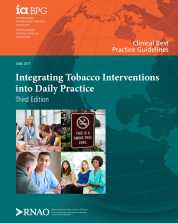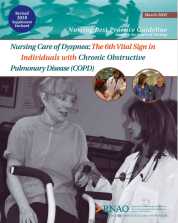The purpose of this best practice guideline (BPG) is to provide nurses and other health-care providers with evidence-based recommendations of foundational asthma care for adults with a diagnosis of asthma.
The purpose of this best practice guideline (BPG) is to:
• improve outcomes for venous leg ulcer clients,
• assist practitioners to apply the best available research evidence to clinical decisions, and
• promote the responsible use of healthcare resources.
The purpose of this best practice guideline (BPG) is to provide nurses with recommendations, based on the best available evidence, related to the assessment and management of adults at risk for suicidal ideation and behaviour.
The purpose of this best practice guideline (BPG) is to present evidence-based recommendations for nurses and the interprofessional team across all care settings to enhance the quality of their practices to support the reduced incidence of perinatal depression through the implementation of five components of care: routine screening, assessment, prevention, coordinated interventions, and evaluation.
The purpose of this best practice guideline (BPG) is to enhance the capacity of nurses, the interprofessional team, peers, policy-makers, and employers to meet the needs of breastfeeding persons, their healthy term newborns, infants, and young children, and their partners, family, and support network.
The purpose of this best practice guideline is to focus on how nurses and the interprofessional team can provide effective trauma-informed crisis interventions (immediately and to up to four weeks post-crisis) in adults (18 years and older) in order to optimize evidence-based practices and clinical outcomes. The guideline is applicable in all practice settings and promotes consistent, evidence-based response and care.
This best practice guidelines (BPG) outlines recommendations for the assessment and care of delirium, dementia and depression in older adults. The focus is on the provision of effective, compassionate and dignified care, and on managing any presenting signs, symptoms or behaviours.
The purpose of this best practice guideline (BPG) is to address the therapeutic relationship and its central importance to nursing practice. Effective nursing practice is dependent on an effective therapeutic relationship between the nurse and the client. The guideline addresses the qualities and capacities of an effective therapeutic relationship, the state of knowledge, and the knowledge needed to be effective in a therapeutic relationship.
The purpose of this best practice guideline (BPG) is to provide best practices for tobacco interventions for nurses and other health-care providers across all care settings, with evidence-based recommendations related to assessment and interventions for adults who use tobacco.
The purpose of this best practice guideline (BPG) is to address the nursing assessment and management of stable, unstable and acute dyspnea associated with COPD.
